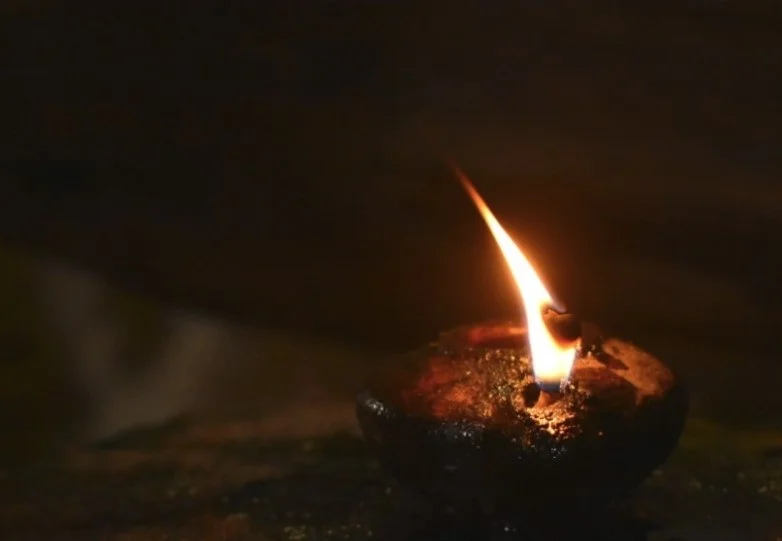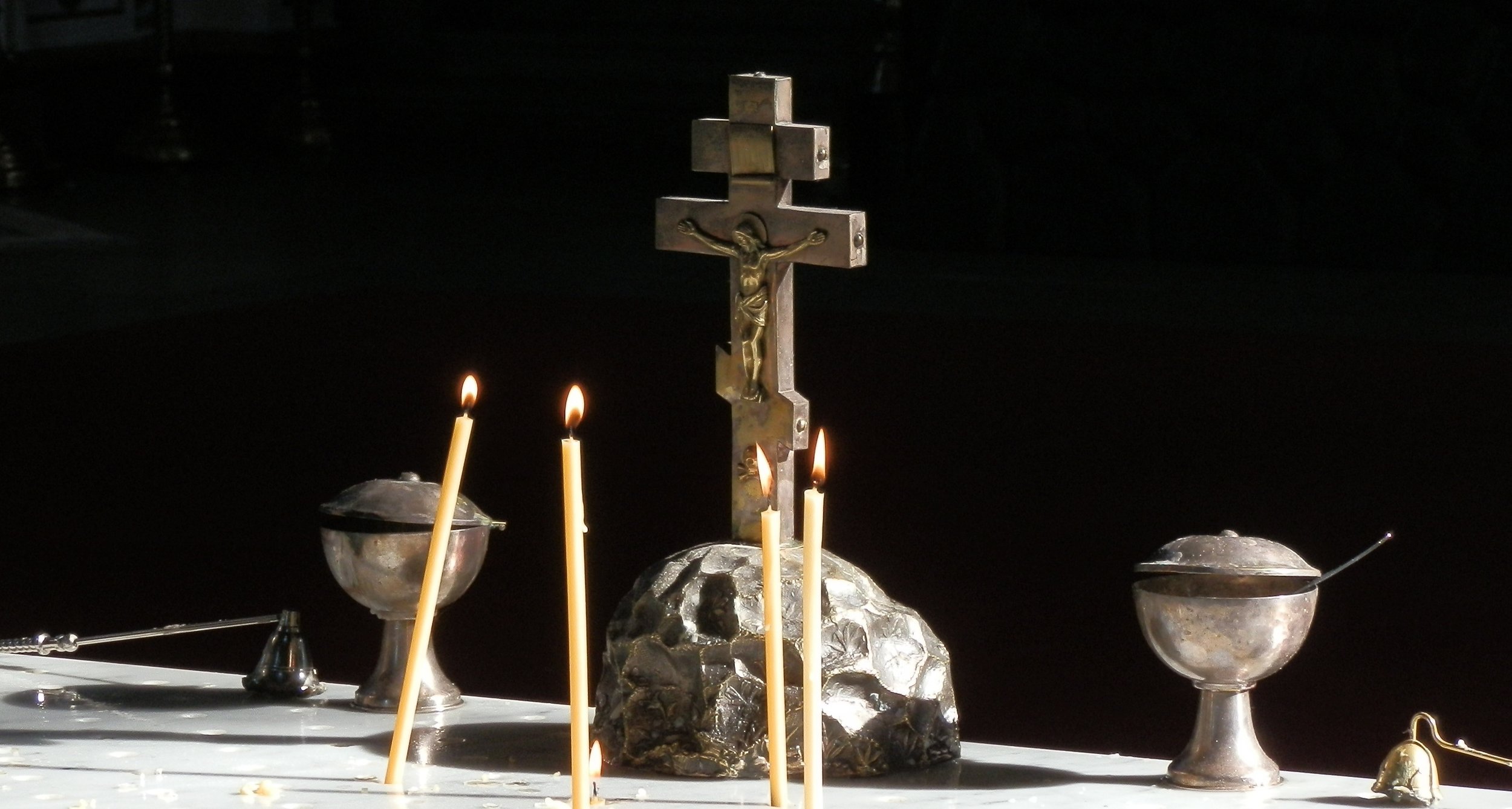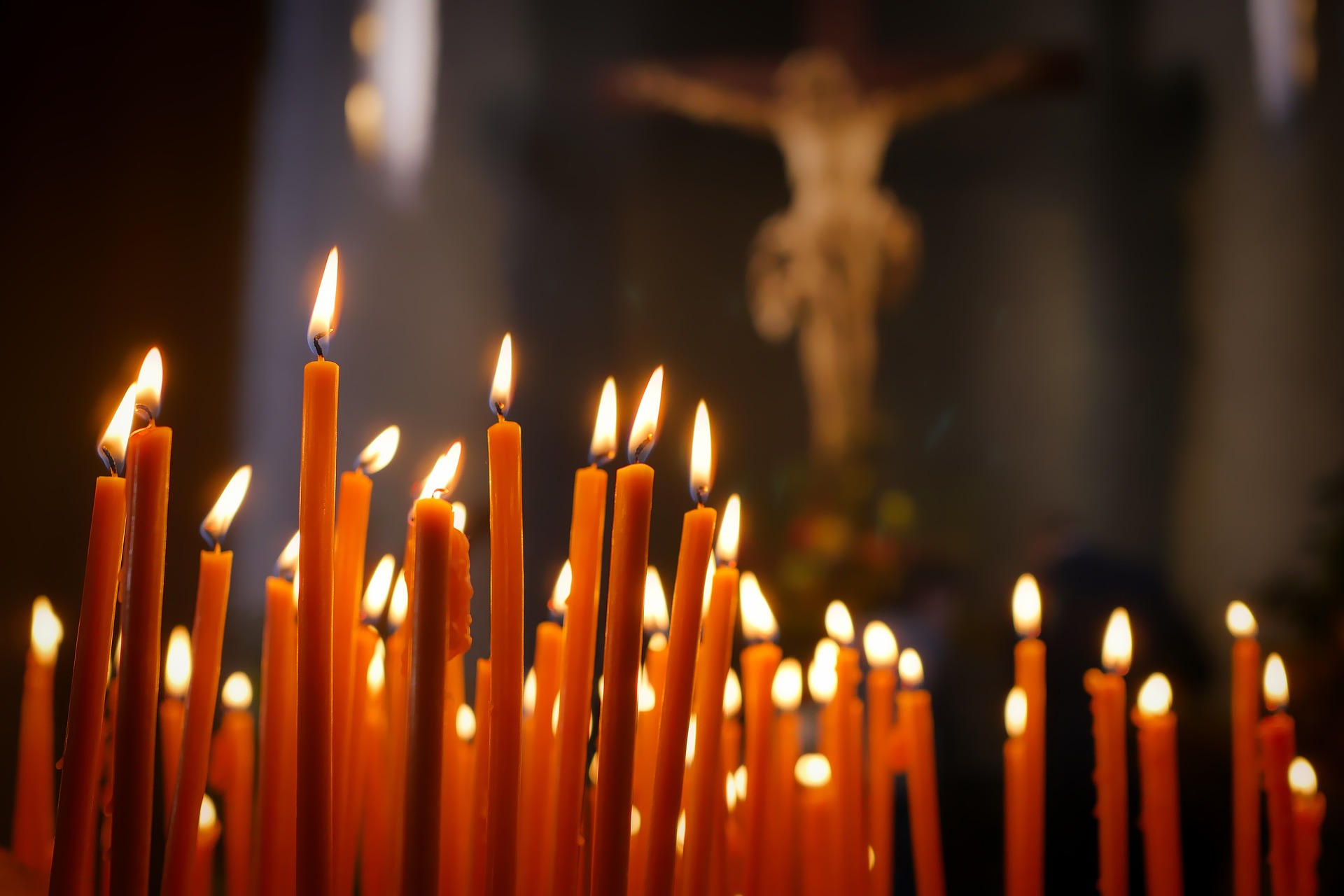Healing Atonement
Irenaeus of Lyons (c.130 - 202 AD)
An old clay oil lamp from Nazareth, Israel. Photo credit: Olivia Armstrong.
Messages and Essays on Irenaeus of Lyons
Lent with Irenaeus: Journeying with Jesus Towards Becoming Truly Human
Beverly, MA: Trinity Press, 2025. A book of thirteen short devotional readings for Lent, from Ash Wednesday to Resurrection Sunday, drawn from the writings of the second century Christian leader, Irenaeus of Lyons. Mako wrote a short Guide for Reflection and Discussion, too.
Beverly, MA: Trinity Press, 2023. A book of ten short devotional readings for Advent and Christmas, drawn from the writings of the second century Christian leader, Irenaeus of Lyons.
Irenaeus on Human Evil and Renewed Humanity. Harvard Ichthus, Nov 16, 2015.
A very short essay highlighting a few aspects of Irenaeus’ thought.
Medical Substitutionary Atonement in Irenaeus of Lyons
An introduction to Irenaeus of Lyons and his theology of atonement. This essay is part of the larger, ongoing work, Penal Substitution vs. Medical Substitution: A Historical Comparison An analysis of the atonement theology ("medical substitution") of early church theologians, including Ignatius of Antioch, Irenaeus of Lyons, the Odes of Solomon, Justin Martyr of Rome, Melito of Sardis, Tertullian of Carthage, Methodius of Olympus, Athanasius of Alexandria (paper in progress to include later theologians, bishops, and councils)
This essay makes the case that Irenaeus uses these terms in a specific, technical, and biblical way derived from Genesis 1:26. I argue ‘in the likeness’ means a mature participation in the substance/object to which one bears that likeness. It is part of my larger argument for the ‘fallenness’ camp, that Jesus assumed a fallen human nature in his incarnation, and that the atonement was a medical substitution, because he cleansed that human nature at his death and resurrection.
Neuroscience and the Theological Anthropologies of Irenaeus and Origen
A paper submitted to Dr. George Dragas at Holy Cross Greek Orthodox Seminary, May 2019. I believe Origen made a mistake when he said that the soul is in the image of God and the body is not. This makes Origen hard to reconcile with Genesis 1 - 2 and also modern neuroscience, which affirms a body-brain-mind connection.
Why God is Not Evil, Not One Bit, According to Irenaeus of Lyons
A ppt presentation reconstructing a lost work of Irenaeus, based on his own writings
A paper submitted to the Pappas Patristics Institute in March 2019. This paper attempts to reconstruct Irenaeus’ lost work based on content from his Against Heresies and Demonstration of the Apostolic Preaching, to address the same concerns and arguments as Athanasius’ two volume work, Against the Gentiles and On the Incarnation, and Basil’s sermon Why God Is Not the Author of Evil.
The Writings of Irenaeus of Lyons
Irenaeus of Lyons, Against Heresies book 3, chapter 17, paragraph 3
Irenaeus of Lyons, Against Heresies book 3, chapter 18, paragraphs 1, 3, 7
Irenaeus of Lyons, Against Heresies book 3, chapter 19, paragraphs 1, 3
Irenaeus of Lyons, Against Heresies book 3, chapter 20, paragraph 2
Irenaeus of Lyons, Against Heresies book 5, chapter 14, paragraphs 1 - 4
Irenaeus of Lyons, Demonstration of the Apostolic Preaching, 31, 32, 34, 37 - 38
Irenaeus of Lyons, Fragment 28
Irenaeus of Lyons, Against Heresies book 4, chapter 14, paragraph 2 says, “He harmonized the human race to the symphony of salvation.” And Irenaeus uses a running metaphor as a thread that pulls these passages together: it’s rooted in the word for "sound," in Greek “phone.” J.R.R. Tolkien used a symphony as the story of creation, and tells the story of Middle Earth as a story punctuated by music, song, and poetry. A similar thread is found in Scripture. When the prodigal son returns home, what does he hear? Music. And the book of Revelation speaks of “the sound of many waters.”
Other Resources on Irenaeus of Lyons
John Behr, trans Irenaeus of Lyons, Demonstration of the Apostolic Preaching. St. Vladimir’s Seminary Press | Amazon page, November 1997. The best translation.
Matthew Baker, "The Place of St. Irenaeus of Lyon in Historical and Dogmatic Theology According to Thomas F. Torrance", in Participatio: The Journal of the Thomas F. Torrance Theological Fellowship. T.F. Torrance Theological Fellowship website, Volume 2, 2010.
Robert Arakaki, Excerpts from Irenaeus of Lyons. Ancient Faith blog, Sep 8, 2012.
Anthony Briggman, Irenaeus of Lyons and the Theology of the Holy Spirit. Oxford University Press | Amazon page, March 2, 2012.
Bryan Cross, St. Irenaeus on Justification. Called to Communion, Jul 31, 2012.
Anthony Zimmerman, Irenaeus, Evolution, and the Sin in Eden. Lifeissues, date unknown.
John Behr, Irenaeus of Lyons: Identifying Christianity. Oxford University Press | Amazon page, September 15, 2013.
Matthew Bryan, The Atonement of Irenaeus. Conciliar Post, Oct 8, 2015. Bryan offers a short and succint article that draws from Irenaeus’ Demonstration.
Bobby Grow, The Father-Son Relation: Rowan Williams on the Irenaean Theology of Participation, and TF Torrance's Homoousion. Evangelical Calvinist, July 14, 2016.
John Behr, The Passion of Jesus as the Key to Reading Scripture. The Church, Apr 2, 2017. Behr makes comments about Irenaeus and the church in the second century,
John Behr, Asceticism and Anthropology in Irenaeus and Clement. Oxford University Press | Amazon page, May 23, 2017.
Anthony Briggman, God and Christ in Irenaeus. Oxford University Press | Amazon page, February 20, 2019.
John Behr, The Gratitude of the Suffering Earth. Laudato Si Research Institute, Jun 2, 2021. Behr examines Irenaeus’ vision of the human and, by implication, creation.
Joshua Schooping, Irenaeus' High Mariology: What it Does Not Prove. Reformed Ninja, Oct 9, 2021.
Sources of Atonement Theology
These resources explore the foundation of “Medical Substitution” as the best understanding of the Bible, and the original understanding of the church. There are also links to books, web articles, etc. from representatives of the three broad Christian traditions.







